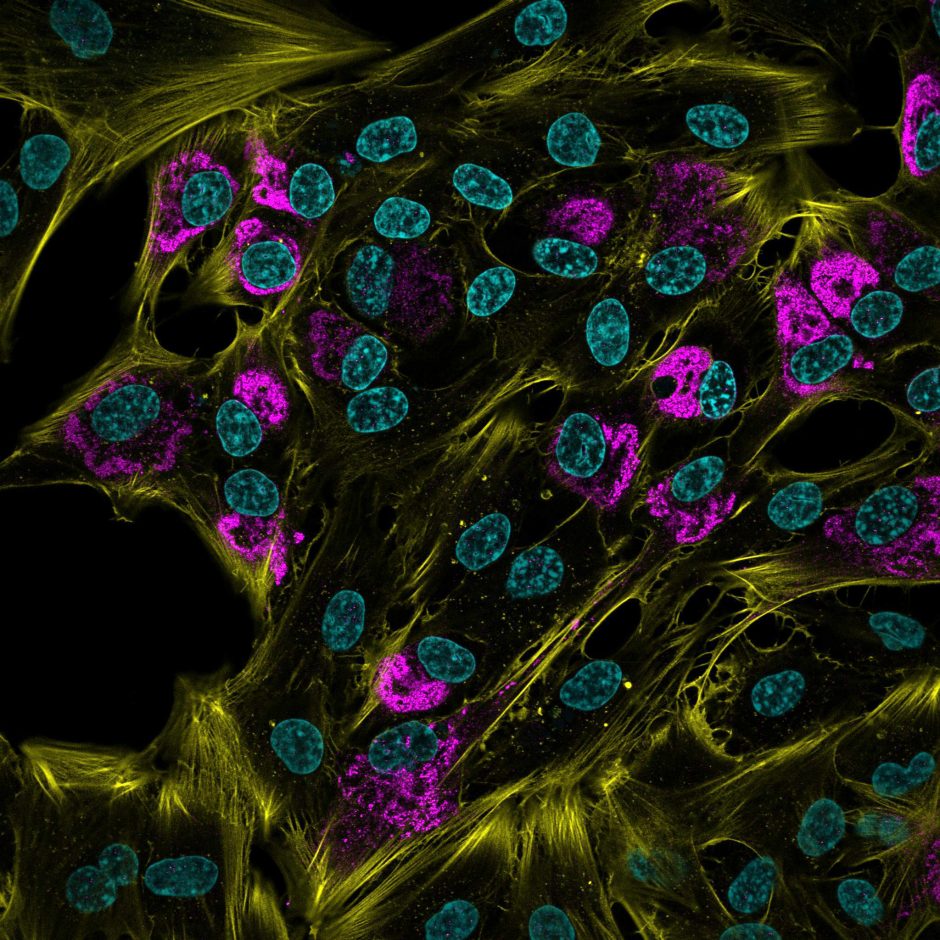Jean Lab
Research Focus Teams: Cancer, COVID
Ongoing Projects
chevron_left
chevron_right
Pre-clinical development of broad-spectrum antiviral strategies against human respiratory viruses of pandemic concern
Respiratory viruses such as SARS-CoV-2 (the virus causing COVID-19) and Influenza A virus, have inarguably had an enormous impact on human health. Although vaccines have greatly limited COVID-19 and Influenza-related hospitalizations and deaths, these viruses are continually changing, resulting in decreased effectiveness of vaccines over time. Drugs that can prevent and treat infections caused by respiratory viruses are therefore also needed. Our research teams have discovered an exciting drug that can block infections caused by multiple viruses, which we call “broadly acting antivirals”. The drug, N-0385 blocks a human protease (a protein that cuts other proteins) that viruses, such as SARS-CoV-2 and Influenza A virus, take advantage of to enter the cells in our respiratory tract. In this research proposal, we aim to further improve the pharmaceutical properties of N-0385 lead drugs, so they are more stable, easier to deliver and more suitable for animal and human drug trials. When given alone or combined, we will then measure how well these improved drugs can block SARS-CoV-2 and Influenza A virus infection in lung and other respiratory cell models. Overall, we anticipate that this research will advance these compounds so they can be further tested in clinical trials, and the future will lead to new and exciting therapeutic avenues for the treatment of viruses with human pandemic potential.
Pre-clinical development of a novel class of broad-spectrum natural products antivirals.
Emerging human viruses such as SARS-CoV-2 (cause of COVID-19), influenza A virus (acute respiratory infection), and Zika virus (microcephaly and other congenital malformations), have had an enormous impact on human health. The World Health Organization (WHO) has declared these three to be Public Health Emergencies of International Concern (PHEICs). Although vaccines have greatly limited COVID-19 and Influenza-related hospitalizations and deaths, these viruses are continually changing, rendering vaccines less effective over time. What’s more, no vaccine is available yet for preventing Zika virus infection. Importantly, no broad-spectrum antiviral drugs are available against these three viruses although each virus was declared a PHEIC [influenza A pandemic (2009); Zika virus epidemic (2016); COVID-19 pandemic (2019)]. Our research team has discovered an exciting drug that can block infections in human cells caused by SARS-CoV-2, influenza A, and Zika, which we call a broadly acting antiviral. The drug, called cladoniamide A (CA), is a natural product (NP) discovered in British Columbia that blocks a human protein complex called vacuolar ATPase that helps human viruses get into our cells. NPs as drugs have fewer side effects and a faster approval process than chemically engineered drugs, a great advantage in dealing with a pandemic. In this research proposal, we plan to further improve the pharmaceutical and antiviral properties of CA and develop a new class of nature-based broad-spectrum medicines against SARS-CoV-2, influenza A, and Zika viruses. We anticipate that this research will further develop cladoniamide A and its derivatives so they can be further tested in clinical trials. In the future, this will lead to new and exciting broad-spectrum possibilities for treating other human viral diseases of global health concern.

Life Sciences Institute
Vancouver Campus
2350 Health Sciences Mall
Vancouver, BC Canada V6T 1Z3

